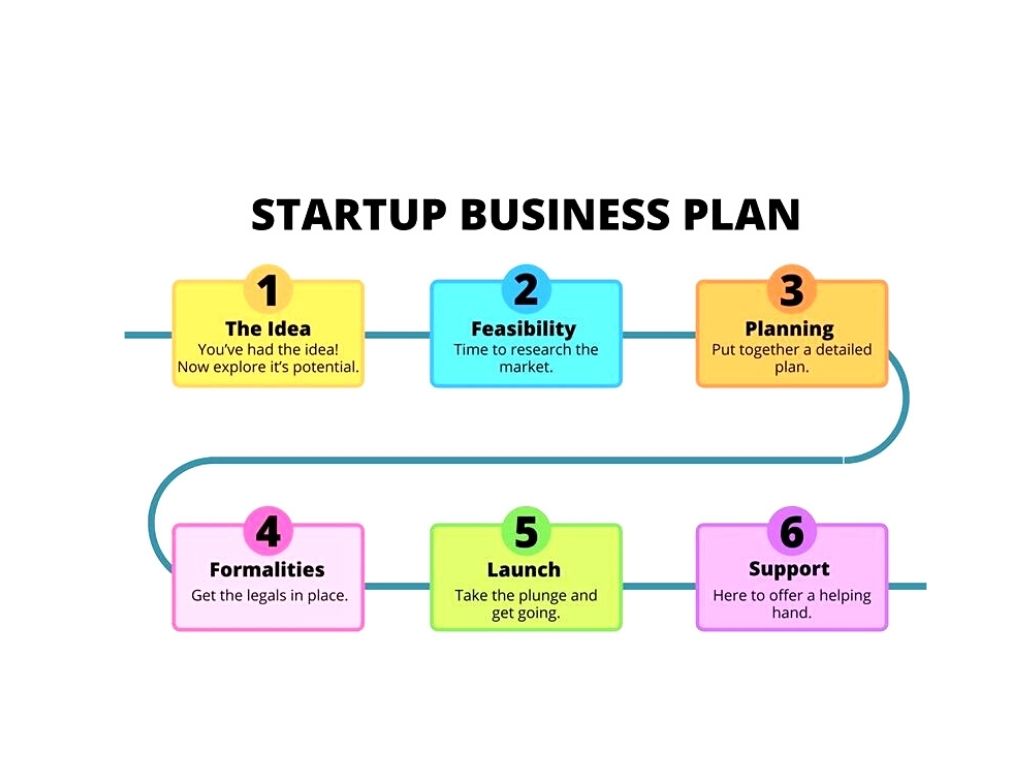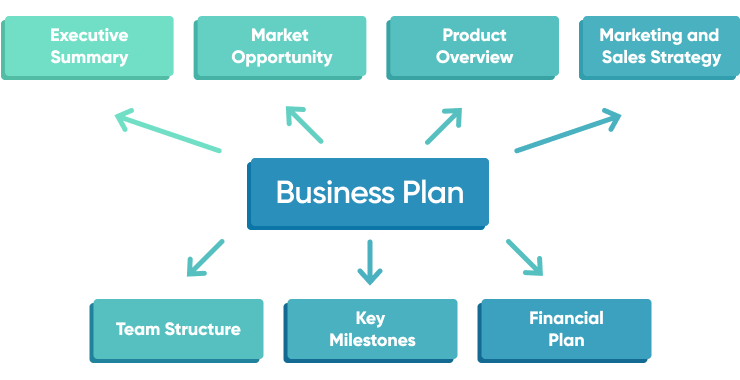A business plan for a startup is a roadmap for your startup, outlining your goals, strategies, and how you plan to achieve them. It’s an essential tool for attracting investors, securing funding, and keeping your business on track.
key steps to writing a business plan for a startup
1. Identify your target audience
- Who are you trying to reach with your product or service?
- What are their needs and wants?
2. Define your value proposition
- What makes your product or service unique?
- Why should people choose you over your competitors?
3. Conduct market research
- Who are your competitors?
- What are their strengths and weaknesses?
- What is the size of the market?
- What is the growth potential?
4. Develop your marketing and sales strategy
- How will you reach your target audience?
- How will you convert leads into customers?
- What is your pricing strategy?
5. Create your financial projections
- What are your revenue projections?
- What are your cost projections?
- How much funding do you need?
6. Write your executive summary
- This is a brief overview of your business plan.
- It should be concise and compelling.
7. Put it all together
- Your business plan for a startup should be well-organized and easy to read.
- Use visuals like charts and graphs to make your data more digestible.
8. Get feedback
- Share your business plan for a startup with friends, family, and mentors.
- Get their feedback and make sure you’re on the right track.
9. Update your business plan for a startup regularly.
- Your business plan is a living document.
- As your business grows, you must update it to reflect your changing goals and strategies.

Tips
- Keep it concise: Your business plan should be no more than 20-30 pages long.
- Use clear and concise language: Avoid jargon and technical terms.
- Be realistic: Don’t overestimate your revenue or underestimate your costs.
- Be passionate: Your business plan should reflect your enthusiasm for your business.

Conclusion
In conclusion, a well-crafted business plan is the foundation for a successful startup. It attracts investors and serves as a guiding document for internal decision-making. Take the time to create a comprehensive plan that communicates your vision and sets your business on a path to success.
FAQs
Do I need a business plan if I’m not seeking funding?
Yes, a business plan is essential for internal clarity and strategic direction, even if you’re not seeking external funding.
How often should I update my business plan?
Regularly revisit and update your business plan, especially when there are significant changes in your market or business model.
What should I include in the appendix?
Include supporting documents like market research, financial statements, and other relevant data that add depth to your plan.
How can I make my executive summary stand out?
Focus on key differentiators, achievements, and the unique value your startup brings to the market.
Is it necessary to hire a professional to write my business plan?
While professional help can be valuable, many entrepreneurs successfully write their plans using online resources

